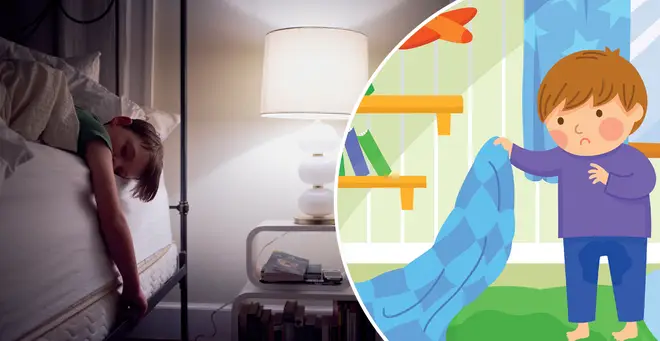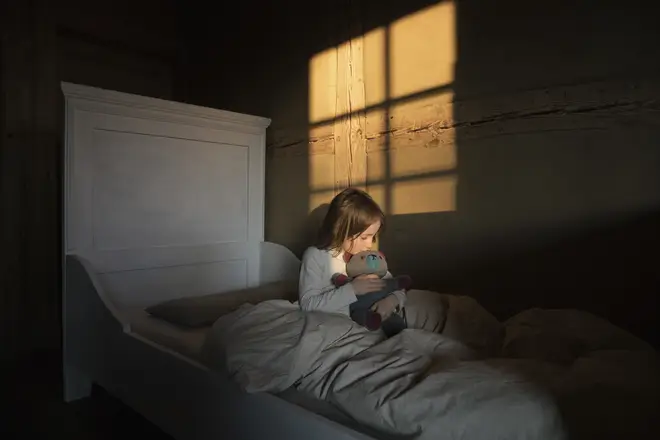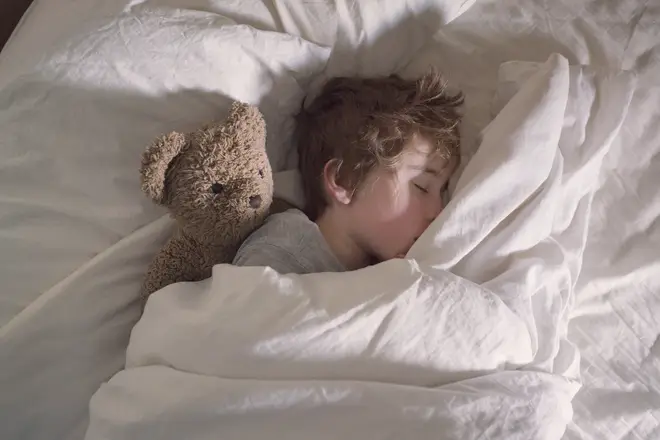On Air Now
Heart Breakfast with JK and Amanda Holden 6:30am - 10am
2 August 2019, 11:52

How to stop your child from wetting the bed: an expert has revealed the best tips and method to stop kids bed-wetting

Around 750,000 potty-trained children still wet the bed at night, meaning there are a lot of frustrated parents out there wondering how best to help them.
Approximately 15 per cent of five-year-olds wet the bed 'every night' according to a report by the MailOnline - and three per cent of 15-year-olds do so on a regular basis.
Read more: Parents divided over children’s ‘chore guide’ claiming two-year-olds should do laundry
The battle to combat bedwetting requires a huge amount of compassion and understanding and, for many parents, it can be a long road to success.
Alicia Eaton is a Clinical Hypnotherapist and Advanced Practitioner of NLP (neuro-linguistic programming). She has worked with children bed-wetting since 2004, and also published a book on the subject in 2009.
Read more: 'People without children need to be BANNED' from Disney World says irate mother
She has 19 golden rules to helping your child stop bedwetting, which are:
1. Pick your moment
Addressing the subject when your child has a stressful week (such as of tests and exams) can be detrimental - so Alicia recommends picking your moment wisely.
2. Keep a diary
Keeping a diary of your child's bedwetting will help you spot a pattern in their behaviour, Alicia says. She recommends keeping tabs on:
- How many times they wet the bed that night
- What time they wet the bed
- What kind of day they were having
- Whether it had been a busy day at school
- Whether they'd done sport and become dehydrated
- Whether they had lots of homework / something to be anxious about
- Whether they had a late night
- What they ate and drank
3. Clear away your clutter
Encouraging your child to declutter their room before bed will help with decluttering their mind, Alicia claims.
4. Review lighting
Alicia claims that many children say they would visit the bathroom more at night if it wasn't so dark, so keeping the route to the bathroom well-lit could be worth a punt.
5. Child-friendly bathroom
Making sure the bathroom is as child-friendly and accessable as possible will help them realise that it's as much their space as yours, says Alice.
6. Take two loo trips before bed
Encouraging your child to use the loo two times before going to sleep will help to empty their bladder.
7. Programme their brains to wake up
Many parents think that their kids are deep-sleepers so are able to sleep through the wetting, but this isn't always the case, says Alicia.

8. It doesn't necessarily run in the family
Although there may be a genetic link, Alicia found that there are actually more bed-wetting children without a family history than those with.
9. DON'T restrict fluids
Alicia says that encouraging your kids to not drink - especially in the summer - isn't best advised. Instead, she says, getting them to sip rather than chug their evening fluid is a better idea.
10. Consider their diet
What children eat affects their bladder - fruit and veg like strawberries and melon can make people need to wee, so Alicia recommends not allowing kids to eat these.
11. Watch out for constipation
An overly full bowel can push on the bladder - if your child is constipated, Alicia says, maybe look at their diet and work out why.
12. Reduce screen time
Watching screens before bed can disrupt sleep and increase the likelihood of bedwetting. Angie reccomends monitoring their screen time to combat this.
13. Stay positive
Make sure to praise your child regularly and be sympathetic when they have an accident, Alica stresses.
14. Get rid of night nappies
After the age of six, it's better for your child to feel the wetness and learn to address it, expert claim.
15. Let them sleep
Waking them up in the night to get them to go to the toilet can make the problem worse, Angie claims.
16. Be prepared
Make sure to have plenty of spare sheets and a mattress protector to ease the issue.
17. Don't punish or reward them
Punishing children can be counterproductive, and Alica isn't a fan of rewarding them either - as she believes children can perform worse when they expect rewards.
18. Be careful how you praise them
If you use words like 'brilliant' and 'fantastic' they can lose their meaning - so Alicia reccomends using phrases like "You've been remembering to..." instead.
19. Share the load
Children will often do something for a teacher and other caregiver that they wouldn't do for a parent - so enlisting help could yield results, Alicia says.